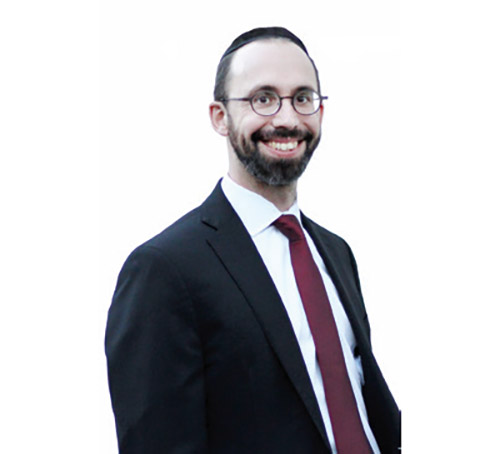
Rabbi Sorotzkin runs the organization Lev L’Achim in Eretz Yisrael, an organization specializing in being mekarev (bringing closer to Judaism) those who don’t have a religious background. He received a strange phone call one day. “Hello, this is Menachem Dvir. Every month I have been donating ten dollars to Lev L’Achim. Now I would like to increase that to eleven dollars each month.” Rabbi Sorotzkin encouraged the man to call his office to handle the change. “Please, Rabbi Sorotzkin, I want you to handle it,” said Menachem. Sensing there was more to the story, Rabbi Sorotzkin said, “OK, tell me, what prompted you to increase your monthly donation?” Menachem explained, “I have a small income and I give what I can to Lev L’Achim. I really feel what you do is so important. A few months ago, my wife gave birth to a healthy baby. Now that things are calmer at home, I am able to come on time to my evening kollel. I just received my first stipend for coming on time and I’m giving maaser (a tithe) on it!!”
Rabbi Sorotzkin was taken aback. Here is a Jew who is making a very minimal income, yet he wants to make sure he is always giving the appropriate amount to charity based on his income. A few months later, Rabbi Sorotzkin was speaking with a wealthy donor and shared this moving story. The man had already written a check, but then re-thought his donation. “Rabbi, I’m so impressed by that individual’s attitude to charity that I’m increasing my own donation by $5,000!”
This same wealthy donor was visiting Eretz Yisrael and asked Rabbi Sorotzkin to allow him to see more of Lev L’Achim’s work, as well as meet some of the great Torah leaders. At the end of the trip he wrote another check…for $90,000!! In the end, Lev L’Achim received a total of $100,000, all inspired by the one-dollar monthly increase of Menachem. This one dollar became worth one hundred thousand! This story is written in Sefer Zera Shimshon [English Edition] by my cousin, Rabbi Nachman Seltzer.
I believe the foregoing story gives insight to a pasuk in Parshas Re’eh. Hashem instructs Bnei Yisrael to give a tenth of their produce to support the tribe of Levi. The Torah then repeats the directive “aseir te’aseir,” to give a tenth. The letters in aseir—tenth—can also be pronounced as osheir—wealth. The Gemara (Taanis 9a) explains that the Torah is instructing us to give maaser—a tenth—in order that you become ashir—wealthy.
Simply, Hashem is promising that those who take care of the needy with the money with which they are blessed will receive an additional monetary blessing! The wording of the Gemara seems to suggest a directive to give maaser in order to become wealthy. Having more monetary wealth than one needs is a blessing, but it’s not supposed to be a focus of life. Why then should we focus on becoming wealthy when giving maaser?
Referring to the earlier story, we can offer an explanation. The promise of wealth is referring not only to monetary wealth but also to spiritual wealth. The reward for the tzedakah we give is much greater than the amount donated. Any help the recipient receives monetarily as well as emotionally accrues to the giver as a reward. And when the donation encourages others to give as well, the original giver’s reward includes all the additional donated money. Menachem’s additional monthly dollar donation became worth the reward for a gift of $100,000, since it was a catalyst for that donation. In the same vein, the Torah is telling us to give maaser to become spiritually wealthy, because the ultimate reward is much greater than the initial monetary investment.
Rabbi Shimon Schwab gives another perspective. Pirkei Avos tells us, “Who is an ashir—(wealthy person)? Someone who is happy with what he has.” True wealth is a feeling inside that I have all that I need. That is a true blessing. Hashem promises that when you give maaser He will ensure that you have a feeling of contentment with all your possessions.
We live in an era with an abundance of luxuries and comforts. The amount of possessions we amass and continuously purchase is enormous. Yet, having more doesn’t necessarily make us happier. In fact, it can make us feel poorer, for the more we have the more we want. Wealth can be a great blessing, but a true feeling of wealth is when we feel we have what we need. That’s the true blessing Hashem promises to those who give maaser: if you give the amount you should, I will bless you with a true feeling of wealth. You will feel truly content with what you have.
By Rabbi Baruch Bodenheim
Rabbi Baruch Bodenheim is the associate rosh yeshiva of Passaic Torah Institute (PTI)/Yeshiva Ner Boruch. PTI has attracted people from all over northern New Jersey, including Teaneck, Paramus, Rockaway and Fair Lawn. He initiated and continues to lead a multi-level Gemara-learning program. Recently he has spread out beyond PTI to begin a weekly beis midrash program with in-depth chavrusa learning in Livingston, Fort Lee and a monthly group in West Caldwell. His email is rb@ptiweb.org.









